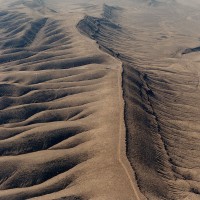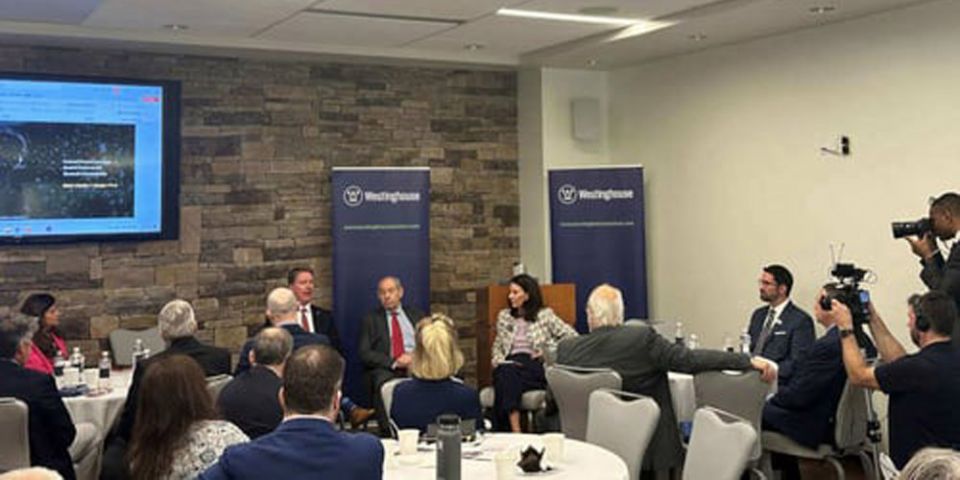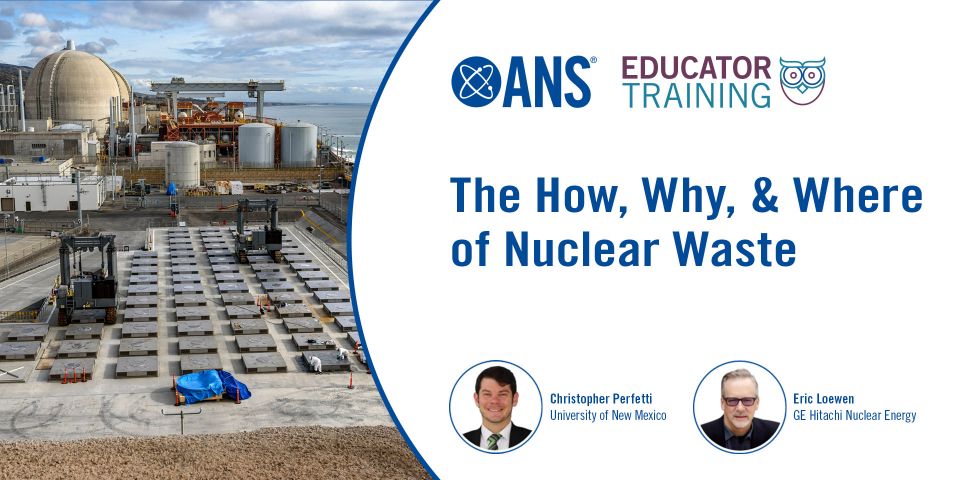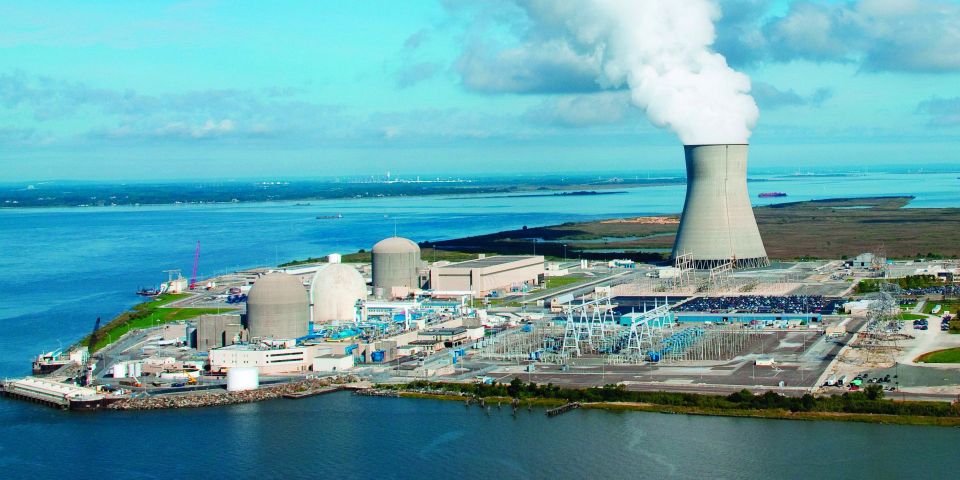The NRC chair and Yucca Mountain
 Several important events have recently occurred involving the U.S. Nuclear Regulatory Commission, the Yucca Mountain nuclear waste repository, and the interactions between the two.
Several important events have recently occurred involving the U.S. Nuclear Regulatory Commission, the Yucca Mountain nuclear waste repository, and the interactions between the two.
New NRC chairman
Last month, NRC Chairman Gregory Jaczko stated that he would resign as soon as his replacement was appointed. His resignation was likely the result of political pressure and questions raised regarding his management of the NRC (which I've discussed in an earlier post).
Soon afterward, the Obama administration nominated Allison Macfarlane as a replacement for Jaczko. Macfarlane has a PhD in geology from the Massachusetts Institute of Technology, and is an associate professor of environmental science and policy at George Mason University. She also served as a member of the Blue Ribbon Commission on America's Nuclear Future.
Based on past statements she's made and publications she's authored, it is clear that Macfarlane is an opponent of the Yucca Mountain repository. She had referred to it as seismically and volcanically unstable, and said that its selection "broke the covenant with the states that the siting process would be fair and the best site would be selected." Her views may be reflected in the conclusions of the Blue Ribbon Commission, which recommended the long-term dry storage of used nuclear fuel, and a new "consent-based" repository siting process. Macfarlane is also on record as supporting the idea of moving used fuel into dry storage as soon as possible to reduce fuel pool-related risks.
Nonetheless, it appears that opposition to Macfarlane's appointment as chairman has been relatively muted. There appears to be a (political) understanding that Macfarlane would be accepted as chairman, as long as Kristine Svinicki is also reappointed to another term as a commissioner (Svinicki's term expires on June 30). Republican (pro-Yucca) senators have stated that they will not block Macfarlane's nomination, and their questioning during Senate confirmation hearings was relatively mild. The Nuclear Energy Institute (NEI) has also not opposed her nomination. On the flip side, Democratic senators have made it clear that they will, in turn, accept Svinicki's reappointment.
Based on the above, it appears clear that Macfarlane will soon be appointed as NRC chairman and Svinicki will reappointed for another term as commissioner.
Court decisions on waste program
There have also been important recent court decisions pertaining to the U.S. nuclear waste program.
In a unanimous decision, a federal appeals court has given the US Department of Energy six months to explain/justify continuing to collect a 0.1 cent/kW-hr waste disposal fee from nuclear utilities, given that there is no plan on the table for permanent disposal (with the abandonment of Yucca Mountain). The plaintiffs were seeking a halt or suspension of the fee. In six months, the court will rule on whether the DOE has given sufficient justification for continued collection of the waste fee. The plaintiffs and other observers are confident that the DOE will not be able to come up with a sufficient justification at that time.
Another recent federal appeals court decision threw out the NRC's waste confidence ruling, which had concluded that waste could be safely stored on (plant) site for as long as 60 years after plant closure, and that a repository would become available when necessary. The court said that the NRC's evaluation failed to consider the impact if a repository doesn't become available, and did not adequately assess the risks of long term on-site storage. The chief judge wrote that "the commission's evaluation of the risks of spent nuclear fuel is deficient," and that spent fuel "poses a dangerous long-term health and environmental risk."
Opinion on the impact of this second ruling varied widely. Anti-nuclear groups (including some of the plaintiffs) hailed the decision and hoped that it would eventually block the NRC from granting new reactor licenses or reactor life extensions.

Klein
Others-including former NRC Chairman Dale Klein-believe that the impact will be relatively small, and that it will simply be a matter of the NRC doing additional work, such as allowing more public comment (some of the court decision text appears to support this view as well.) The NRC could also perform site specific (as opposed to generic) evaluations of long-term fuel storage risks. Others in the industry actually view the ruling in a positive light, thinking that it will put pressure on the government to move forward with solutions to the waste problem, such as centralized storage or licensing a repository (e.g., Yucca). NEI disagreed with the ruling, and urged the NRC to quickly address the court's concerns.
Finally, there is a federal appeals court decision due sometime this summer as to whether the NRC is legally required to finish the Yucca Mountain license application. While the Nuclear Waste Policy Act requires the NRC to evaluate the application, the NRC is arguing that since Congress has not appropriated any more money to the NRC to complete the task, it "cannot" do so. Yucca supporters have pointed to $10 million that the NRC has at its disposal for the task, but the NRC maintains that $10 million is not nearly enough money to finish the task. Meanwhile, the House recently approved an additional $10 million for the NRC to complete the licensing review. The fate of this funding in the Senate is unclear (of course).
In addition to disagreeing with the lack of funding argument in general, Yucca supporters point out that while $10 million may not be enough to get through the legal hearings phase of the process, the NRC could certainly release the safety evaluation reports (SERs), which give the scientific/technical conclusions of NRC staff (which almost everyone believes concluded that Yucca Mountain met the requirements).
Perspective on Macfarlane's appointment

Macfarlane
As for the NRC chairman position, the selection of Macfarlane was clearly political, as was the selection of her predecessor. It is clear that one of the primary, if not the primary, basis for her selection was her opposition to Yucca Mountain. It's clear that opposition to Yucca was a requirement (i.e., a litmus test) for being considered for NRC chairman; a testament to the power of Senate Majority Leader Reid. Macfarlane's background is in geology and public policy, with some experience in nuclear waste issues. She has very little background or experience in the area of nuclear power or nuclear reactor technology. (Then again, neither did her predecessor.)
NEI's acquiescence to Macfarlane's selection as chairman is either a sign that they know that they won't be able to get anything better, or that they are more focused on reactor issues and are willing to let Yucca go by the wayside. (It is true that, frankly, long term on-site storage of used fuel does not represent a significant cost, in the grand scheme of things.)
Jaczko's conditioning his leaving on the appointment of a successor was politically shrewd, in that it gave the advantage to Reid and Obama. Refusal to accept anti-Yucca nominees by Yucca supporters in Congress would have simply led to Jaczko staying on indefinitely. Thus, the choice was clearly between Jaczko or another Yucca opponent. My only question is, couldn't NEI, and other industry supporters (in Congress, etc..), have held out for a Yucca opponent who also knows a thing or two about nuclear power/reactors?
Macfarlane may be right that Yucca may not be the very best repository site anywhere in the country, and yes it would be ideal to have both local and state consent for a repository (note that Yucca DOES have local consent). But that's not the point, at least as far as the Yucca license application is concerned. The question is whether Yucca is good enough to meet the requirements (impeccable requirements that far exceed those applied to any other waste stream). After spending billions on Yucca analysis, the American public deserves to at least know if Yucca would have met the requirements, and if it remains a viable disposal option (if we ever decided to use it).
All indications are, however, that Macfarlane will continue to do what Jaczko has done, which is to use administrative tricks and the lack of funding excuse to effectively halt the licensing process. She will probably also try to prevent the release of the SERs (which show that the repository passed the NRC staff's objective, scientific evaluations). Whatever you believe about policy, whether or not Yucca passed the specified technical requirements is a matter of simple fact/truth. How can anyone in good conscience favor the suppression of the truth? I find the actions of Jaczko (along with Reid, possibly Obama, and soon to be Macfarlane) in this specific area to be unconscionable.
I've always believed that the release of the SERs, or having Yucca pass the NRC licensing review, would be of significant value even if a political/policy decision were made to not proceed with the repository. A significant fraction of the public is laboring under the false notion that there is no practical or technical solution to the waste problem (i.e., they don't understand that it is purely a political problem that has been technically solved). This is a significant source of opposition to nuclear. If we go back to the drawing board (in a quest to find a "consent-based" repository), without getting it on record that Yucca passed the (impeccable) technical requirements and is a technically viable solution, the public will go on believing the false premise that there is not (and may never be) an acceptable technical solution to the waste problem. This will have a negative impact on public support for new reactors going forward.
With Macfarlane at the helm, and any funding for completing the licensing review likely to be blocked by Reid, the only hope for completing the licensing review may be in the courts. Let's hope that the courts understand that the political will of one man (Reid) does NOT represent the will of Congress. Many votes have already made clear that large bipartisan majorities in both houses support Yucca, and that it is only the power of one man, over both legislation and appropriations, that is causing the current situation. Given that the Nuclear Waste Policy Act was passed into law (making Congress' intent at that time clear), and that finishing the application still reflects the will of the great majority of legislators, the court should see that finishing the application is the clear "will of Congress", one senator's undue influence over the budget and appropriations process notwithstanding.
Perspective on court decision
As for the court decision throwing out the NRC's waste confidence ruling, all I can say is that I hope the optimists are right (i.e., that it's just a matter of doing some more work or that the ruling is a means by which the government will be pressured to move a waste solution forward). Personally, the decision makes me a bit nervous. The anti-nukes seem to believe that it will lead to blockage or shutdown of reactors.
Can we be sure that the government (or courts) will not take such a (drastic) step? What will be sufficient to satisfy the court? Will centralized long-term storage facilities be enough, or will we need a repository (or at least tangible progress in that regard)? Or will further analysis into technical issues of very-long-term dry storage be sufficient? Again, this is an area where having a licensed repository would be of value, even if the political/policy decision (at present) is not to pursue it.
I personally take issue with the court's characterization of stored nuclear fuel as "a dangerous long-term health and environmental risk". As someone who works in the dry used fuel storage field, I'm confident that the risks of long-term storage are negligible. The issue of whether fuel is stored in pools or in dry storage casks is independent of the issue of how long it takes to establish a repository. The result of a lack of (or delay in) a repository is increased dry fuel storage (not pool storage) especially given that confidence ruling considered the period after the plants are closed/decommissioned (where all fuel is in dry storage). There are few, if any, conceivable mechanisms that would cause a significant release from dry storage casks. Tangible or significant public health impacts are all but inconceivable. Also, inspections of casks, which have been loaded for ~20 years, are not showing significant degradation of the cask materials.
In addition, one must ask the question, "dangerous compared to what"? The (obvious) fact is that the risks associated with long-term dry fuel storage are negligible compared to the public health and environmental risks associated with the fossil fuel plants that would be used in lieu of nuclear plants, if nuclear plants were closed (or not built) over the lack of a waste confidence rule. One would hope that the NRC would mention such issues (risk comparisons that look at the bigger picture) in the revised waste confidence evaluations required by the court. But alas, I wouldn't hold my breath . . .
I've been advocating looking at the bigger picture (i.e., the risks of nuclear compared to the fossil fuel alternatives) for some time now, with respect to a lot of things, such as deciding nuclear regulations and how strict they should be. I'd love to see a cost vs. public health risk benefit analysis for the Vogtle basemat rebar issue. Any remotely reasonable evaluation would conclude: "use as is". But, of course, no such evaluation will be done ("verbatim compliance!").
There's one positive development in this area, however. The American Nuclear Sociery has taken a courageous stand in its Fukushima Committee Report, where it suggests that the federal government quantitatively assess the relative risks/impacts between nuclear and other energy sources. Hopefully, the conclusions of such an evaluation would be considered when making decisions on future requirements for nuclear plants. It may perhaps lead to recognition that if such requirements were to result in nuclear plant closures, public health risks and environmental impacts would increase due to the use of fossil fuels instead.
_____________________________________

- Hopf











